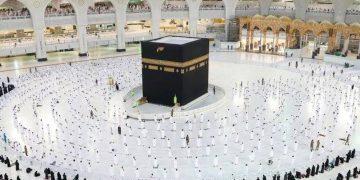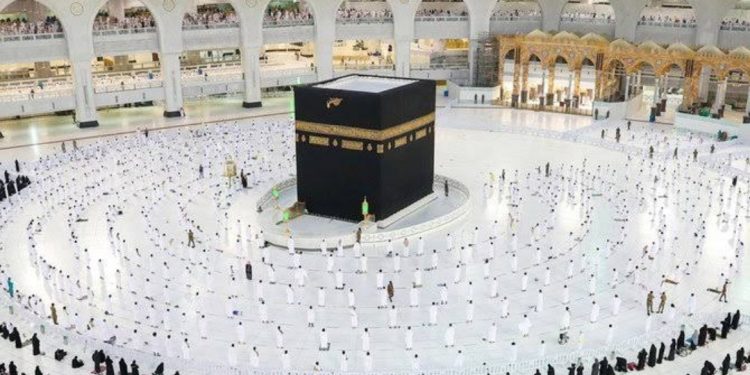By John Ikani
Saudi Arabia has placed travel restrictions on Nigeria and other countries from performing 2021 Hajj over coronavirus concerns.
This is as the country situated in South West Asia announced Saturday it will allow 60,000 vaccinated residents of the kingdom to perform the annual hajj.
In 2020, only 1,000 pilgrims were allowed to perform the hajj because of Coronavirus.
Its implication is that more than 70,000 intending pilgrims, who already made deposits and obtained COVID-19 vaccines as part conditions, would miss the yearly exercise.
According to the official Saudi Press Agency, the Hajj ministry said this year’s pilgrimage would be “open for nationals and residents of the kingdom, limited to 60,000 pilgrims”.
With this, travellers from Nigeria have been barred from performing hajj for the second time in a row.
Last year, the kingdom also hosted downscaled hajj amid the coronavirus pandemic, preventing thousands of Nigerian pilgrims from participating.
This is the second time Nigeria and other global Muslims would miss hajj due to the global pandemic.
Meanwhile, the National Hajj Commission of Nigeria NAHCON has assured intending pilgrims that their deposits would be refunded without delay.
A statement signed by spokesperson, Fatima Usara, said: “We have accepted that it is Allah’s divine design that multitudes will, again, not perform the Hajj, this year. The Kingdom of Saudi Arabia is only playing out a script ordained by our Maker. …”
“Our prayer is that we collectively turn to Him in repentance so that He admits us for Hajj in the coming years. One of the lessons from these two years’ cancellations is in the Prophet’s hadith…
What you should know
The hajj – a must for able-bodied Muslims at least once in their lifetime — typically packs millions of pilgrims into congested religious sites and could be a major source of contagion.
The limit on umrah pilgrims is 20,000 a day, with a total of 60,000 worshippers allowed to perform daily prayers at the mosque.
The umrah usually attracts millions of Muslims from across the globe each year. Authorities said the umrah would be allowed to return to full capacity once the threat of the pandemic has abated.
The revered Black Stone in the Kaaba – which is customary but not mandatory to touch during the pilgrimage – remains out of reach.
A scaled-down hajj represents a major loss of revenue for the kingdom, already reeling from the twin shocks of the virus-induced slowdown and a plunge in oil prices.
The hajj and the year-round umrah pilgrimages together rake in some $12 billion (10.3 billion euros) annually.
Last year, the foreign press were barred from the hajj, usually a huge global media event.
Saudi Arabia has so far recorded more than 460,000 coronavirus infections, including 7,536 deaths.




































